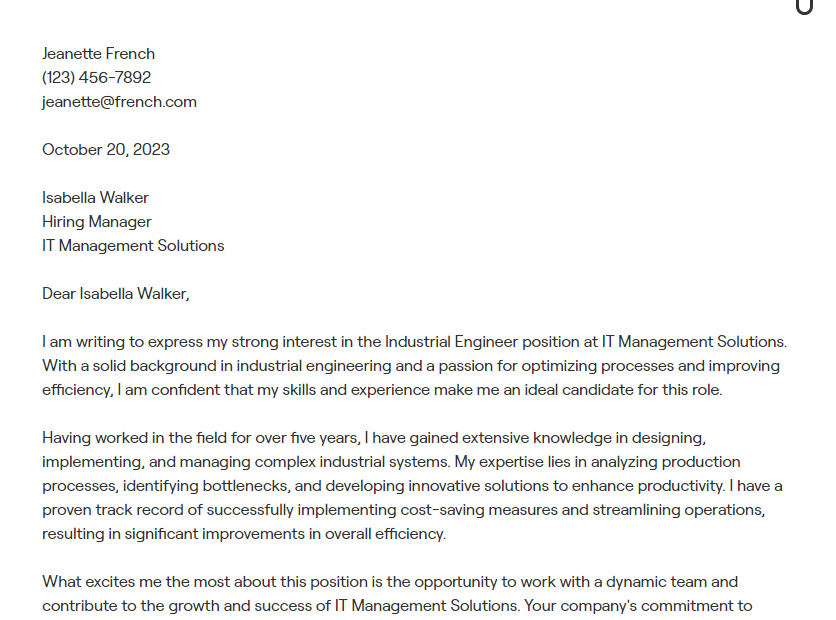
(301) 758-0527
[email protected]
January 4, 2025
Charles Hansen
Hiring Manager
Burnett and Sons
Dear Charles Hansen,
I am writing to express my enthusiasm for the Instrumentation Engineer position at Burnett and Sons. With a Bachelor's degree in Electrical Engineering and over five years of hands-on experience in the design, implementation, and optimization of instrumentation systems, I am excited about the opportunity to contribute to your company's reputation for excellence in industrial solutions. Your commitment to innovation and quality in process control systems resonates deeply with my professional philosophy and career objectives.
Throughout my career, I have honed my skills in developing and managing instrumentation and control systems that increase efficiency, safety, and reliability. At my current position with Technotron Industries, I spearheaded a project that revamped the control systems for a chemical processing plant, resulting in a 20% increase in production efficiency and a significant reduction in unscheduled downtimes. My expertise extends to the meticulous selection and calibration of sensors, as well as the integration of SCADA systems, ensuring real-time monitoring and control that are critical in today's fast-paced industrial environments.
What excites me about the role at Burnett and Sons is the chance to work with a team that values cutting-edge technology and continuous improvement. Your recent venture into renewable energy markets is particularly intriguing, and I am eager to bring my background in sustainable energy systems to support this initiative. My experience with advanced process control (APC) and distributed control systems (DCS) aligns with your needs for high-precision engineering and positions me as an ideal candidate to help drive your projects to successful completion.
I am particularly impressed by Burnett and Sons' dedication to fostering a collaborative work environment where innovation thrives. I am a firm believer in the power of teamwork and knowledge sharing to solve complex engineering challenges, and I am confident that my proactive approach and commitment to excellence will complement your esteemed team. I am also excited about the prospect of further developing my skills in instrumentation design and project management within a company that is renowned for its leadership in the field.
Thank you for considering my application. I am very interested in the opportunity to join Burnett and Sons and am confident that my technical skills and passion for process optimization will make a significant contribution to your company's success. I look forward to the possibility of discussing how my experience and vision can align with the innovative projects at Burnett and Sons. Please find my resume attached for your review.
Sincerely,
Jennifer Davis


















